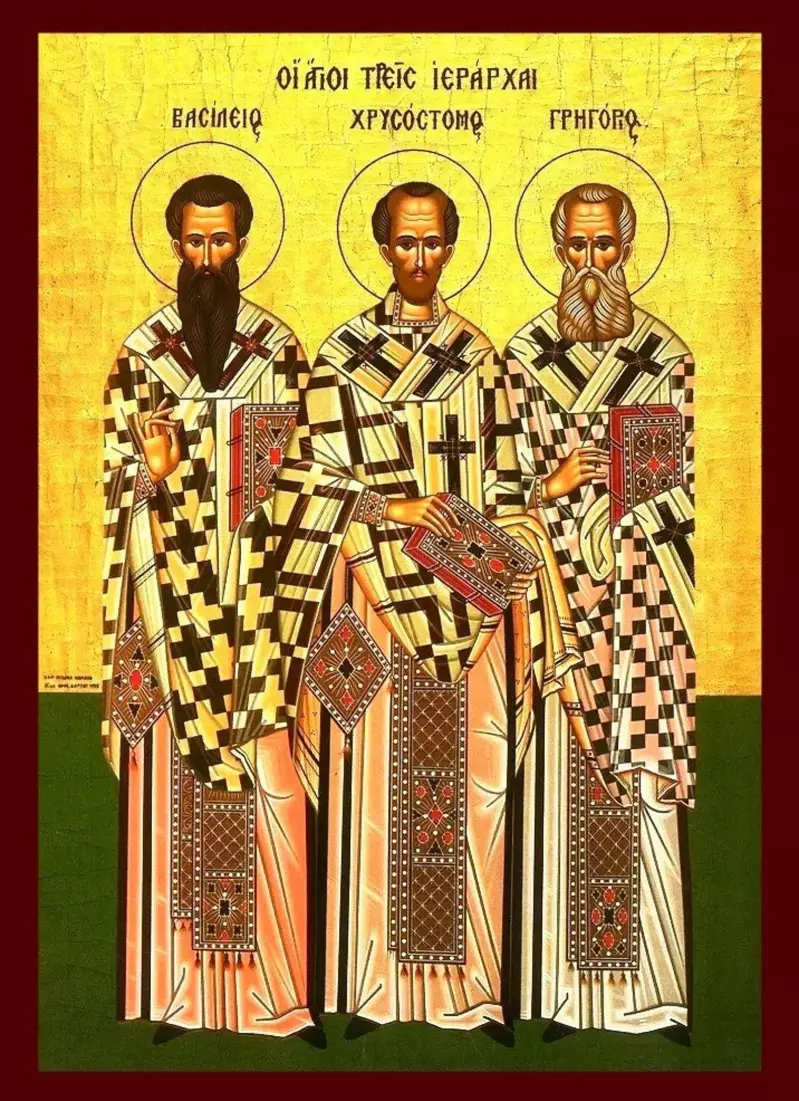
Thoughts Related to “Christian Hellenism” on the Feast of the Three Hierarchs
By Paul Rosenboom
The Greek Orthodox Church has designated the Feast of the Three Hierarchs as not only a celebration of the contribution of these luminous Fathers of the Church, from whom flowed sweet rivers of wisdom that illumined the world, but also a day dedicated to the achievement of Hellenic learning and culture. As such, it seems a fitting time to share some brief thoughts on the meaning of the term “Christian Hellenism.”
In the early history of Orthodoxy, the Gospel and Hellenism combined in a synthesis that has formatively shaped the theology of the Church. Hellenism became an instrument for expressing, insofar as human language can, the ineffable mystery of the Godhead and the Divine Economy. This “Christian Hellenism” is a frame of mind or way of thinking about God, man and the world. As Father Georges Florovsky, the eminent Russian theologian, states: “Hellenism is a permanent category of Christian existence.”
The divinely-inspired Scriptures of the New Testament were written in the Greek language and, indeed, most Christian literature that followed thereafter. The faith spread throughout a Mediterranean world that was essentially Greek-speaking and Greek thinking. With the Holy Fathers, Hellenic philosophy was incorporated into the faith in an organic manner. They believed that Hellenic philosophy had found its fulfillment in Christ, Who is the Eternal Logos. Ancient Greek philosophical terms and categories were baptized into the Christian Faith and used throughout the age of the Ecumenical Councils to define and defend the Faith against heresy. The golden age of the fourth century, characterized by the profound witness of St. Athanasios and the Cappadoccian Fathers, marked the climax of this synthesis between Hellenism and the Gospel. It established within Orthodoxy the harmony between faith and reason which has been so elusive in the theological and philosophical tradition of post-schism Western culture. It constituted the redemption of human reason and made possible the relating of Christ to every aspect of human existence. It gave a refinement, freedom and breadth to Orthodox theology, in contrast to a Latinized western theology which saw the rise of a crude and juridical Augustinianism and a subsequent Scholasticism that was strongly academic in character and divorced from the ascetic and liturgical tradition of the Orthodox East.
It might be worth emphasizing here, it is not that knowing Greek is so essential to being Orthodox - although it would be for a theologian or clergyman - as it is an understanding that the unique Orthodox way of theologizing was historically and definitively expressed in Greek philosophical terms and categories. When we read the writings of the eastern Greek Fathers in Russian, English or any other modern language, we organically absorb the Hellenic legacy. It is in this sense that Russians, Palestinians, Serbs, Romanians, etc. understand themselves to be Greek Orthodox. Regardless of ethnic or national origin, every Orthodox Christian shares in the Hellenic heritage. It is incumbent upon those Orthodox who are Greek by ethnicity that they interpret Hellenism not in narrow ethnocentric or chauvinistic terms but rather in this inclusive and universal sense, thereby conveying the genuine spiritual and moral character of their inspiring Christian heritage.
--------------------------------------------------------------------------------
Much of the above commentary derives from the following important works, which provide a more thorough explanation of Christian Hellenism:
- The Collected Works of Fr. Georges Florovsky
- Byzantine Theology by Fr. John Meyendorff
Interestingly, both theologians were of Russian heritage.
Add comment
Comments